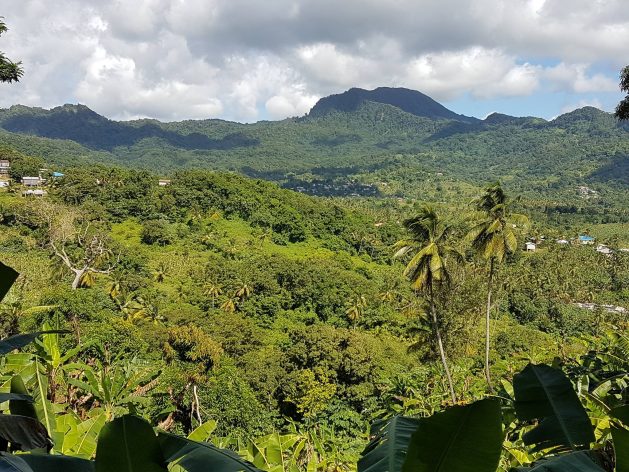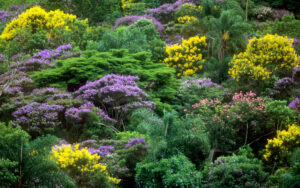By Alison Kentish
The Global Youth Biodiversity Network (GYBN) has put leaders and policymakers on notice that they are not willing to listen to the same conversations, suggestions and unmet promises, as the world faces a biodiversity crisis. With its network of national youth chapters across the globe and promotion by some of the world’s leading youth voices, the network has launched a massive youth mobilisation campaign, with the hashtag #samesucks.
The campaign, which is built on years of youth consultation, kicks off on International Day for Biological Diversity and ends on World Environment Day.
“Youth see that it is all the same. The conversations are the same. If you follow the negotiations ten years ago and what the politicians were saying then, what the negotiators were saying and you follow the negotiations happening in the Convention of Biological Diversity now, they are saying the same things. It is frustrating,” GYBN Global South Focal Point Swetha Stotra Bhashyam told IPS.
“Even after so many years, going through such a pandemic, they are still talking the same language. They are not even changing that. That’s what is really riling us up.”
Bhashyam is a zoologist who previously studied rare species from the field in India. She has temporarily left wildlife studies and research, to devote her time and voice to biodiversity conservation action.
She concedes that the #samesucks campaign is drawing some early backlash for its tough words. She says the biodiversity movement is known for being less forceful than climate change, but a stronger stance is needed, in keeping with the gravity of the current biodiversity crisis.
“We are also frustrated about the same empty promises that we are being given. We are frustrated about the greed in the world. We are tired of the same old story.”
The GYBN is the youth constituency recognised under the Convention on Biological Diversity (CBD) an international agreement for the conservation, sustainable use and equitable sharing of the earth’s species, ecosystems and genetic diversity. It has been ratified by 196 nations.
For the next three weeks, the GYBN is taking over the CBD’s Instagram page, hoping to amplify youth biodiversity advocates’ message by reaching its close to 300,000 followers.
The CBD is encouraging an online-only biodiversity day campaign this year, due to the ongoing COVID-19 pandemic. Officials have encouraged youth to embark on awareness-raising campaigns and calls to action that are feasible at the national level.
The GYBN’s driving statement is “leaders and businesses have fed us the same lies, the same broken promises, the same too-little-too-late solutions, the same destructive fossil fuels. But we know that if we keep doing things the same way we are doomed.”
Members are launching a ‘samestagram’ initiative to commemorate the day. They say they are reaching young people through the most popular platforms, with messaging that they understand. That initiative urges young people to post the same picture multiple times on Instagram, something that they would never do, to show how the ‘same old thing’ is tedious and quickly loses its appeal.
For users who think that the language of #samesucks is too strong, the GYBN is also encouraging the use of #stopthesame and #biodiversityrocks.
The youth campaign precedes the adoption of a new global biodiversity framework and the United Nations Biodiversity Conference, known as COP15.
In his Biodiversity Day address, United Nations Secretary-General Antonio Guterres said governments are pushing for an ambitious framework, aware that biodiversity is declining at an ‘unprecedented and alarming’ rate.
The UN chief stated that the COVID-19 pandemic should not only serve as the world’s reminder of the relationship between people and nature but should be seen as ‘an opportunity to recover better’ and reverse the damage being done to the world’s species and ecosystems.
“We need to protect nature, restore ecosystems and establish a balance in our relationship with the plant. The rewards will be tremendous. By reversing biodiversity loss, we can improve human health, realise sustainable development and address the climate emergency,” he said.
“Solutions exist to protect our planet’s genetic diversity on land and at sea. Everybody has a part to play.”
For young people who want to play a bigger part in raising awareness of biodiversity issues, Bhashyam said advocacy can be pursued incrementally.
She said youth can start at the personal level with sustainable lifestyle choices. When they are ready, she suggests getting more political and asking elected officials for the change that is needed. She is also advising young people to get involved in biodiversity and other nature-related youth groups.
The youth advocate says collective youth action is happening and young people are answering the call to be part of the solution – as they hold leaders and policymakers accountable.
Some of the GYBN members who are based in New York City are planning to meet outside the United Nations Headquarters on International Biological Diversity Day and fly the #samesucks banner high.
(International Day for Biological Diversity is observed on May 22 under the theme ‘we’re part of the solution.’ A network of youth groups is informing policymakers that young people are tired of the same old rhetoric and platitudes.)




